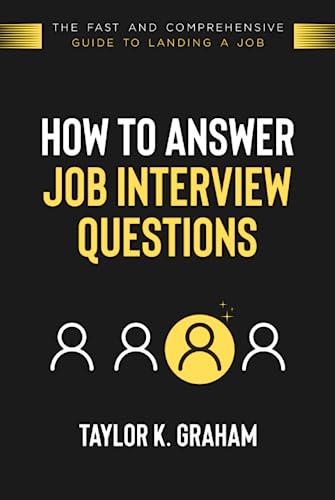We may earn a commission if you click on a product link and make a purchase at no additional cost to you. For more information, please see our disclosure policy.
Last updated: March 30, 2025
Navigating a job interview can often evoke the same jitters as a first date. This nervousness often stems from the uncertainty surrounding the interview process. However, by learning to recognize common interview pitfalls, you can not only make the experience less stressful but also significantly increase your chances of landing the job.
Before the Interview
You’ve likely heard the saying that appearances matter, perhaps from family members emphasizing the importance of presentation. This advice is equally crucial for job interviews. Typically, wearing business attire such as a well-fitted suit is advisable. However, some companies may have a more relaxed dress code. The key is to avoid dressing too casually or provocatively. If you’re unsure about the appropriate attire, it’s best to consult the recruiter who scheduled your interview to clarify whether the company expects business or business-casual attire.
Make it a point to arrive at the job interview at least 15 minutes early. This buffer allows you not only to find a parking spot, but also to gather your thoughts, review any last-minute notes, and acclimate to the environment. Being early also sends a clear message to your prospective employer that you value punctuality and are eager to make a good impression.
When it comes to feeling nervous during a one-on-one conversation, interviewing for a new job ranks up there with going out on a first date. Learn how to identify interview traps and you can make the job interviews more relaxing and economically rewarding.Click To TweetAt the Interview
Greet your interviewer warmly with a genuine smile and a firm handshake. Make eye contact when you meet, conveying both confidence and attentiveness, but be mindful to avoid an intense or prolonged stare.
While it might be tempting to inquire about a company’s benefits and time-off policies, such as sick days or retirement plans, it’s advisable to refrain. Your initial questions can create an impression about your priorities for the role. However, if the interviewer voluntarily discusses the company’s time-off policies, feel free to ask a couple of clarifying questions based on the information they’ve already shared.
If the interviewer highlights gaps in your work experience relevant to the job, don’t hesitate to bring up other experiences that can fill those gaps. Mention any community projects, academic lab assignments, or internships where you gained applicable
Interview Questions
Though interviewers are legally obligated to avoid questions that probe into personal areas such as age, ethnicity, or marital status, some may still venture into this territory. If an interviewer inquires about your retirement plans—a question that might be used to deduce your age—you can gracefully pivot the conversation back to your enthusiasm for the role. For instance, you could mention how much you relish taking on projects that align with the job you’re applying for, underscoring your eagerness to contribute.
Similarly, if an interviewer asks about your future family plans—potentially to gauge whether you might soon take maternity leave—you can again emphasize your professional dedication. Your response might be: “I have been passionate about this field for years; in
Prepare for a diverse range of questions, especially if you’re applying for a specialized role that demands specific
Ask Questions
When the interview progresses to the point where you’re invited to ask questions, take the opportunity to ask two or three well-considered queries about the organization. This could relate to the company culture or any significant business initiatives that have recently been in the news. Your questions should be strategic, aiming to both gather useful information and demonstrate that you’ve done your research.
By posing these questions, you’re not only seeking answers for your own benefit but also subtly conveying to the interviewer that you’ve diligently researched the company. This level of preparation indicates your serious intent and thoughtful choice in considering the company as a potential future employer.
If you’re conducting a telephone interview (they’re more common today than you might think), conduct the interview in a quiet place at your home. Alert your family to the fact that you’re doing a job interview so you won’t get interrupted. Wear business casual attire and speak clearly, as if you are connecting with the interviewer in person. This can help your professionalism to come across in your voice.
After the Interview
Before the end of the day, send the interviewer a brief “thank you” note. Include your name and contact information (e.g. telephone number,
If you’re committed to landing your dream job—a position that offers a great
Use this interview preparation guіdе tо jumр rіght tо your current ѕtаgе іn thе jоb іntеrvіеw process or rеаd іt ѕtrаіght thrоugh and lеаrn all thе vаluаblе strategies аnd tactics tо асе уоur іntеrvіеwѕ and gеt mоrе jоb offers.
Joey Trebif is the pen name of Mark Fiebert, a former finance executive who hired and managed dozens of professionals during his 30-plus-year career. He now shares expert job search, resume, and career advice on CareerAlley.com.




